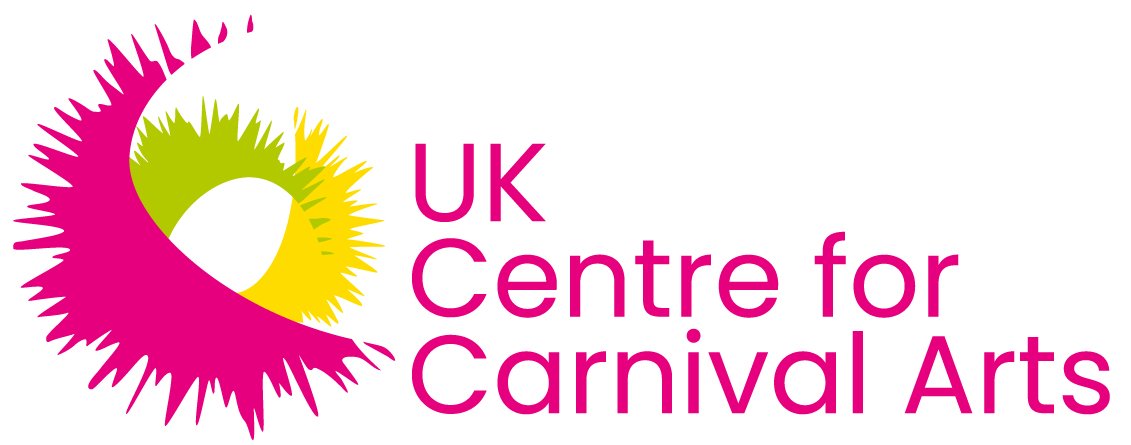Reuse & Recycle Practices in Carnival Costume Making
Reuse and recycling practices offer significant benefits and challenges in balancing creativity with sustainability in carnival costume making. Repurposing materials like fabric scraps and plastics reduces waste and minimises the carbon footprint of costume production, contributing to environmental conservation (Smith, 2020).
Transforming discarded items into unique artworks fosters creativity and encourages sustainable values within the artistic community (Johnson, 2019).
The New Carnival Company
The New Carnival Company is recognised as the UK's leader in sustainable carnival costumes. Their 2020 conference and the creation of the Sustainable Carnival Alliance marked significant milestones in promoting eco-friendly practices within the carnival community. Committed to environmental responsibility, they reduced their use of foam by 70%, also banning single-use plastic and fossil fuel power vehicles from the Parade. They champion the use of recyclable and biodegradable materials in costume design and their environmental aims extend beyond costumes, encompassing waste reduction, energy efficiency, and community education. By fostering collaboration and innovation, the New Carnival Company strives to transform the carnival industry, making sustainability a core value and inspiring others to follow suit.
Melissa Simon-Hartman
UKCCA Resident Artist Melissa Simon-Hartman is revolutionizing high-end carnival and theatre costumes, as well as unique fashion pieces and accessories, by pushing the boundaries of reuse and recycling. Her refined practice of transforming recycled materials and found objects places her at the forefront of sustainable practices in high-end fashion and costume design.
Born and raised as an only child in North-West London, Kilburn, to a Ghanaian father and Trinidadian mother, Melissa’s first experience with costume making was Notting Hill Carnival. It was love at first sight, and Melissa would spend her summers immersed in the Mas camps, learning and cultivating her craft through the help and mentorship of the bands’ resident designers. Even at this young age, she excelled creatively and would go on to attend the prestigious London College of Fashion where she would graduate with a degree in theatrical costuming.
Melissa would go on to launch her own brand – Simon-Hartman London – in 2009, focusing initially on statement footwear and accessory pieces. However, Melissa never lost her love for Carnival and theatrical costumes and soon her focus would shift back onto her two passions.
Reshaping her focus onto creating high-end theatrical costumes containing a Carnival flair, Melissa has since contributed design pieces to the Afro-futuristic set design of the character Safe Odum, played by singer Ne-Yo, in the hit Starz television series ‘Step-Up’, and her statement costumes have been featured in music videos from Little Mix, Stefflon Don, and WizKid ft Burna Boy, as well as publications such as Harper’s Bazaar, The Cut and GQ magazine. Her carnival costumes were displayed in a stunning advertisement featured prominently on the Piccadilly Circus billboard for Samsung UK during Carnival Season 2020. Melissa made her debut as costume designer for the Shakespearean stage in the Much Ado About Nothing 2022 theatre production at the Royal Shakespeare company.
St Kitts, Nevis & Friends Carnival Band
St Kitts, Nevis, and Friends Carnival Band marked their 40th anniversary at Luton Carnival 2024. Reusing and revamping their archive of carnival costumes, a tradition rooted in necessity and cultural storytelling. This practice reflects Caribbean carnival traditions, emphasizing sustainability while reimagining and retelling vibrant stories through recycled costumes, celebrating heritage and creativity.
Luton Council Carnival Band
Luton Council Carnival Band participated for the second year in Luton Carnival 2024, proudly wearing reused and recycled costumes. This initiative aligns with their pledge to make Luton a carbon-neutral town by 2040. The costume pieces were up-cycled from old carnival costumes, meticulously stripped back, repainted, and redecorated to highlight the endless possibilities of reuse and recycling. This creative approach not only showcases the band's commitment to sustainability but also serves as a vibrant example for the community, inspiring others to embrace eco-friendly practices while celebrating the rich cultural heritage of the carnival.
Scandalous Mas Band
Scandalous Mas Band, Luton’s dedicated children's carnival group, made significant strides in 2024, in reducing the use of foam and single-use plastics in their costumes. By incorporating recycled materials and found objects, they teach children from an early age about the importance of recycling and environmental stewardship. This initiative promotes creativity, encouraging kids to transform cardboard boxes and other recyclable items into imaginative costumes. Through these efforts, Scandalous Mas Band not only fosters environmental awareness but also inspires playful learning and artistic expression, helping children understand the value of sustainability while participating in the vibrant tradition of carnival.
Learning and Participation
UKCCA is dedicated to reuse and recycling through our schools programme, exemplified by Ferrars Academy's participation in the Luton Carnival 2024. Students wore revitalized costumes, some over 10 years old, that were meticulously repaired and revamped. This initiative allowed the year 4 students to enjoy their first carnival experience in a vibrant display of color, while also learning the importance of sustainability. By breathing new life into old costumes, UKCCA not only promotes environmental responsibility but also ensures that the joyous tradition of carnival is accessible and meaningful for future generations.
The adoption of sustainable materials and practices in UK carnival costumes exemplifies a progressive approach to cultural celebration. By integrating eco-friendly innovations, the carnival industry not only reduces its environmental impact but also sets an inspiring example of creativity and responsibility. As designers continue to explore sustainable alternatives, the vibrant tradition of carnival costumes in the UK evolves into a model of harmonious coexistence between artistry and sustainability (Taylor, 2020).
However limitations in material availability and quality can hinder artistic vision and costume durability. Additionally, the time and labour-intensive nature of preparing recycled materials present practical challenges (Brown, 2021).


















